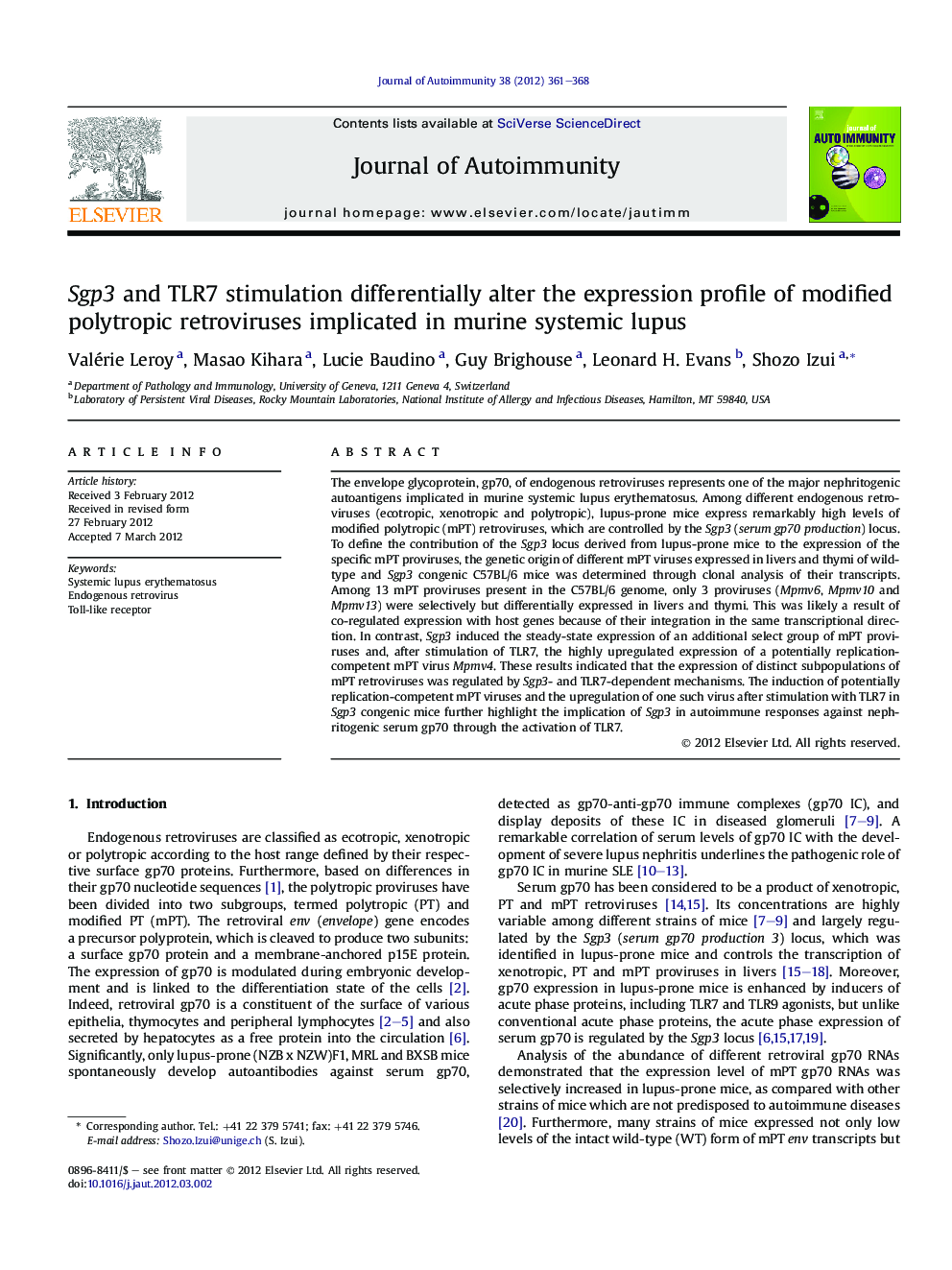| Article ID | Journal | Published Year | Pages | File Type |
|---|---|---|---|---|
| 3367994 | Journal of Autoimmunity | 2012 | 8 Pages |
The envelope glycoprotein, gp70, of endogenous retroviruses represents one of the major nephritogenic autoantigens implicated in murine systemic lupus erythematosus. Among different endogenous retroviruses (ecotropic, xenotropic and polytropic), lupus-prone mice express remarkably high levels of modified polytropic (mPT) retroviruses, which are controlled by the Sgp3 (serum gp70 production) locus. To define the contribution of the Sgp3 locus derived from lupus-prone mice to the expression of the specific mPT proviruses, the genetic origin of different mPT viruses expressed in livers and thymi of wild-type and Sgp3 congenic C57BL/6 mice was determined through clonal analysis of their transcripts. Among 13 mPT proviruses present in the C57BL/6 genome, only 3 proviruses (Mpmv6, Mpmv10 and Mpmv13) were selectively but differentially expressed in livers and thymi. This was likely a result of co-regulated expression with host genes because of their integration in the same transcriptional direction. In contrast, Sgp3 induced the steady-state expression of an additional select group of mPT proviruses and, after stimulation of TLR7, the highly upregulated expression of a potentially replication-competent mPT virus Mpmv4. These results indicated that the expression of distinct subpopulations of mPT retroviruses was regulated by Sgp3- and TLR7-dependent mechanisms. The induction of potentially replication-competent mPT viruses and the upregulation of one such virus after stimulation with TLR7 in Sgp3 congenic mice further highlight the implication of Sgp3 in autoimmune responses against nephritogenic serum gp70 through the activation of TLR7.
► Lupus-prone mice express extremely high levels of modified polytropic retroviruses. ► Their expression is controlled by the Sgp3 locus derived from lupus-prone mice. ► Sgp3 promotes the expression of unique subpopulations of modified polytropic viruses. ► Replication-competent retroviruses can be highly induced through TLR7 activation.
